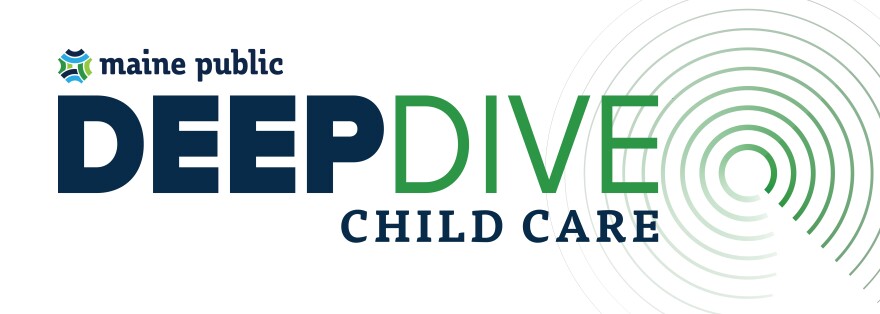Just over the border of western Maine, the province of Quebec created a government-subsidized universal child care system for preschool-age children 20 years ago. Advocates of the system say it has provided parents with affordable child care, but acknowledge that the quality has been inconsistent among nonprofit and for-profit providers.
Pierre Fortin, emeritus professor of economics at the University of Quebec at Montreal, has studied the system, which he says was designed to help families but has also been found to generate economic benefits. He spoke with Maine Public’s Ed Morin about the system.
This story is part of Maine Public’s Deep Dive on child care. To see the rest of the series, visit mainepublic.org/childcare.
Fortin: It’s a system that is run by private caregivers. It’s not governmental. It’s all private. Some are nonprofit, some are for-profit. And there is a government subsidy which allows you, as a parent, to pay something like $2,000 a year instead of $12,000 a year, so that you get a huge subsidy to help you balance work and family.
Morin: Am I right in thinking that this child care system actually pays for itself?
Oh, yes, that is a very important question. People believe that this — the child care system like the one Quebec has — is unaffordable by a provincial government, or a state government in the U.S. That is entirely wrong. Such a system creates such a huge incentive for mothers to stay in the labor force or return to the labor force faster. Returning to the labor force faster, that increases the labor force participation rate of women. Those women pay taxes, and the businesses that employ those women pay, also, corporate taxes and all that. If you accumulate all these additional taxes, it turns out that the government gets more tax revenue from this increased labor force participation rate of mothers than it has had to increase the cost of child care in the province. In other words, not only does the system pay for itself, but it, in fact, generates fiscal surpluses.
What are some of the problems that people have expressed about the current system that’s in place? I believe that one of them has to do with a difference in quality.
There are two types of problems that came. That is important for you to understand, because if any state in the U.S. embarks on such a system eventually, you have to understand what we did wrong here, to make sure you don’t make the same errors as we did. So those two errors were that we did not expand the high-quality sector fast enough, so that waiting lists increased. We solved that. But in solving this, by opening the child care system to the private sector, we fell on a new problem, which was that the private sector does not compete on quality but mainly on price. And so the average level of quality in the private sector is much, much lower than in the nonprofit sector, which is directly subsidized by the government.
So, just to be clear, these are private for-profit centers.
Exactly.
So why hasn’t the rest of Canada adopted this Quebec child care system?
The cost of the system falls entirely on the shoulders of provincial governments, and the federal government doesn’t have a penny to pay for it, on one hand, but on the other gets huge additional tax revenue. The provinces have just recently understood that it’s a very effective program in helping women stay in the labor force, and at the same time that when you get the high quality, there’s good educational care for children, and therefore, they are very much interested in going this route. But on the other hand, financially they are waiting for the federal government to get involved in the system.
Maine Public’s Deep Dive: Childcare in Maine is made possible, in part, by the John T. Gorman Foundation and United Way’s Women United.
Originally published 4:50 a.m. June 24, 2019



